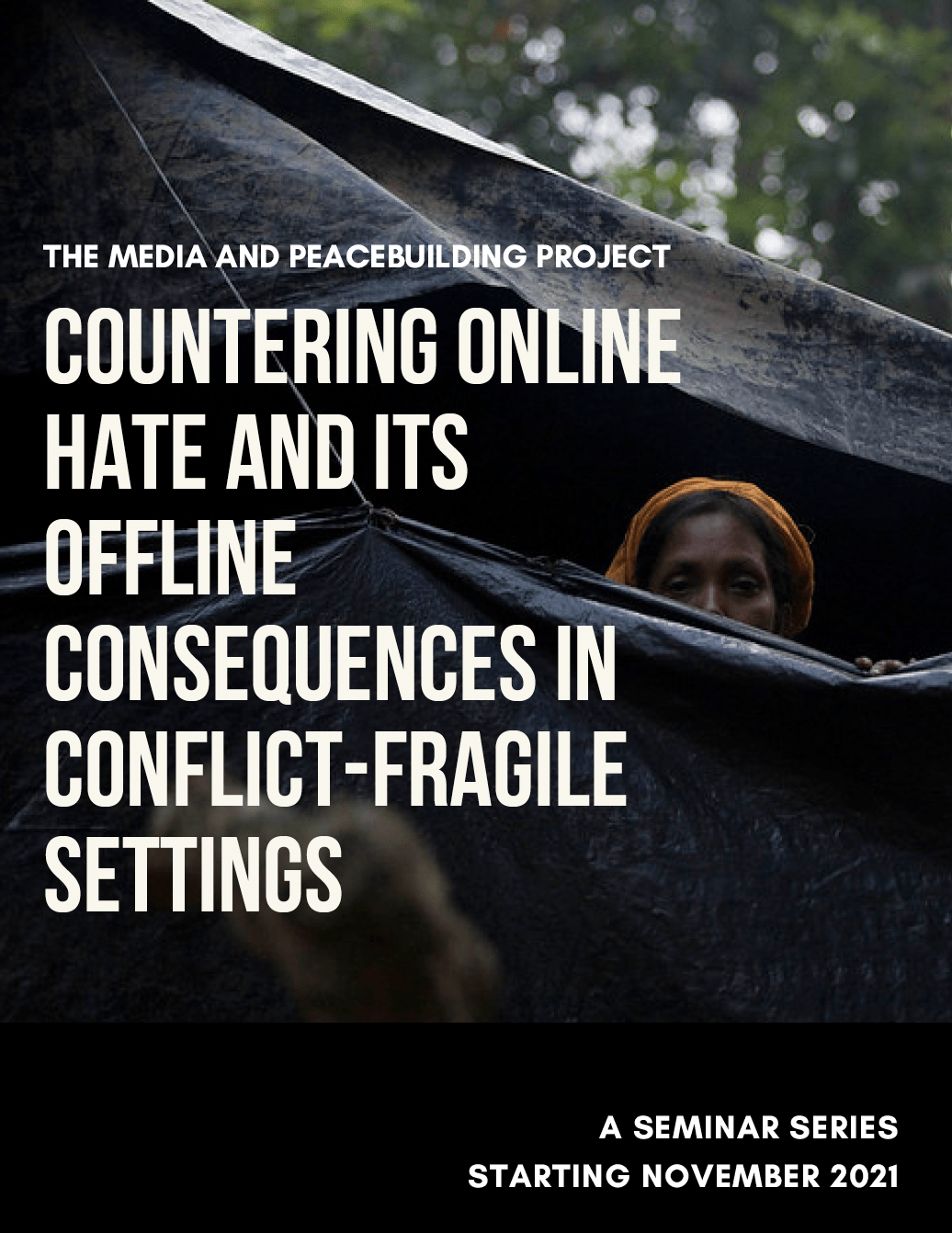Preventing Electoral Violence Panel: Insights on the Use of Technology in Promoting Peaceful Outcomes
On November 1st, the Media and Peacebuilding Project held a panel that addressed an intersection of topics surrounding the role of media and technology in mitigating hate rhetoric, misinformation, political hostilities, and electoral violence.
Panelist Vasu Mohan, Senior Advisor for Conflict and Displacement at International Foundation for Electoral Systems, shared details of his experience in Indonesia in 2018, where he engaged with Muslim and Christian populations through religious community leaders and civil society to counter hoaxes and improve fact-checking systems before the district’s election. A noteworthy element of this intervention was that the election candidates both agreed to sign and publicize codes of conduct; this became the framework for Indonesia’s general election.
Panelist Susan Benesch, founder and director of the Dangerous Speech Project, shared her experience during the 2012/2013 election in Nairobi, Kenya, which occurred in the aftermath of political election violence in 2006. Benesch collaborated with the writers and actors of a popular courtroom drama; together they released four episodes discussing how violence-inciting rhetoric can be a political tool for weak leaders. Independent evaluations found this initiative mitigated hate rhetoric, and Benesch emphasized how publicizing the role of violent hate rhetoric as a political tool can effectively reduce its impact.
The third panelist, Theo Dolan, Digital Technology and Civic Activism Advisor at USAID, discussed his work with the US Peace Tech Lab in developing early warning and response technology to counter disinformation and hate speech in Kenya. In 2017, the US Peace Tech Lab collaborated with the Kenyan Institute for Social Accountability in customizing their SMS platform to target five key districts with a history of electoral violence. This platform was able to monitor and collect data in real time whilst engaging with members of society in countering hate rhetoric.
A noteworthy topic the panel addressed was the use of artificial intelligence as a method of detecting and countering hate rhetoric. All panelists noted the need for further research on comparisons between human-drafted counterspeech and AI-drafted counterspeech. One advantageous aspect of AI that was noted was its capacity to counter higher magnitudes of hate speech in a timely manner. However, key questions remain regarding how AI can function in reactive and dynamic environments and how AI translations across different languages remain accurate and maintain trust across diverse populations.
A critical takeaway from this panel was the importance of addressing harmful rhetoric within one’s own group rather than attacking opponents, which risks escalation. The discussion noted how accountability within one’s political party was more impactful than criticism of another.
Additionally, the panel emphasized practical strategies for preventing electoral violence and countering hate rhetoric, highlighting the power of fear as a driver of conflict—noting that fear-based messaging can often play a bigger role than blatant hate speech. The panelists highlighted the importance of the role of art and local media in fostering dialogue. Theater, graffiti, murals, and radio were all mentioned as practical, low-resource tools for reaching a wide audience of speakers and shifting narratives.
Lastly, the panel identified the role of youth and women as key figures in peacebuilding and promoting unity. Noting that most political violence is perpetrated by young men, speakers advocated for interventions targeting this demographic while also mobilizing broader youth-led and women-led peace initiatives. Women’s leadership can be vital in mitigating tech-facilitated gender-based violence and while additionally challenging harmful gender norms. Through centering marginalized voices, particularly women and youth, communities can counter fearful and hateful sentiments and promote electoral processes centered on peace.





